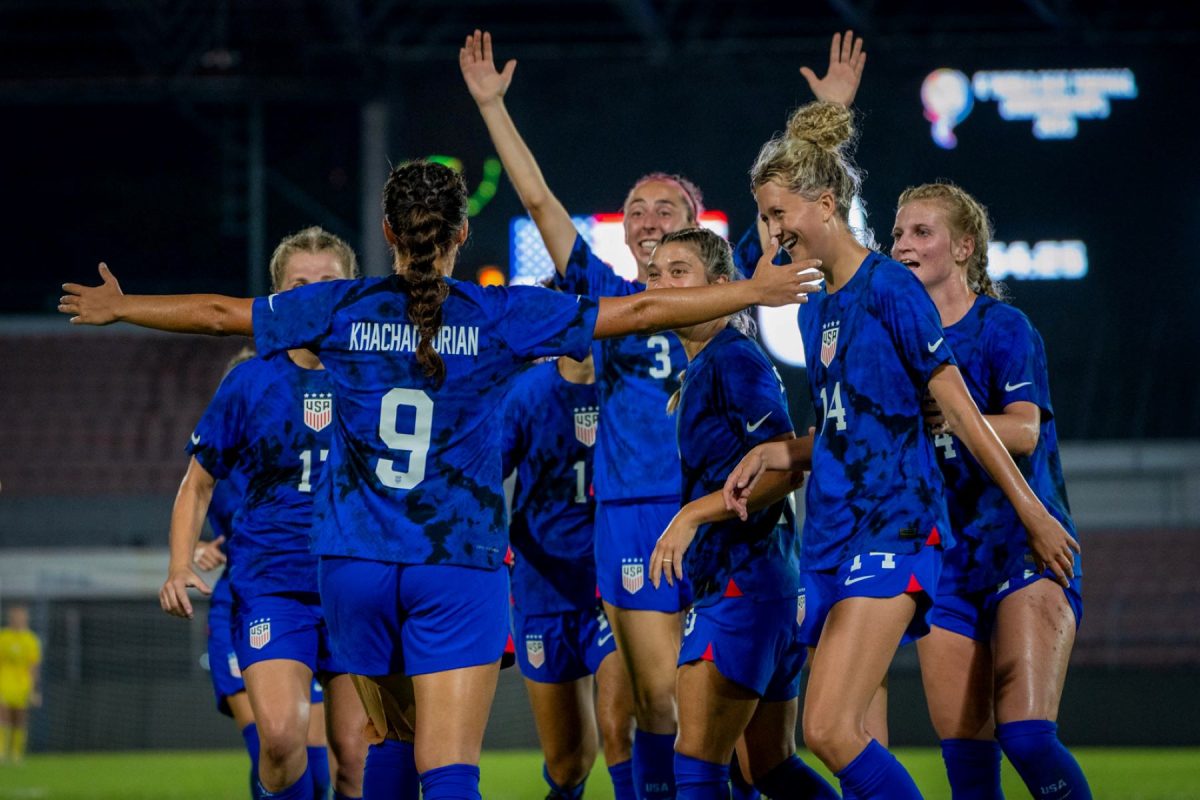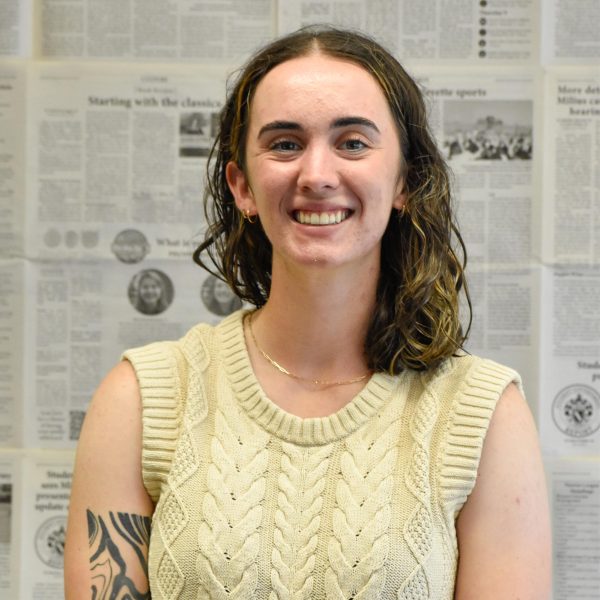The U.S. Women’s National soccer team may not have won the World Cup this past summer, but U.S. soccer has a new world champion in junior Ani Khachadourian.
Khachadourian, a midfielder for Lafayette’s women’s soccer team, just returned victorious from the third women’s World Deaf Football Championship, played in Kuala Lumpur, Malaysia. The team was able to maintain its unbeaten record on the international stage, winning every match since its first appearance in the 2005 Deaflympics in Melbourne, Australia.
“I’m just honored and grateful because if you told me when I was thirteen, ‘Oh, yeah, you’re gonna be representing the United States,’ I wouldn’t have believed you,” Khachadourian said.
The U.S. squad is comprised of hard-of-hearing and deaf players who have a hearing loss of at least 55 decibels in their better ears. While many players wear hearing aids or have cochlear implants, they are not allowed to wear them during matches. Khachadourian has noted that this pushes her to rely more on visual communication than she does in her collegiate matches.
“Obviously the playing style is completely different,” Khachadourian said. “People are like, ‘Oh, you can’t hear, how’s the playing style?’ It changes everything. Just because when you’re defending you can’t say, ‘Hey, look, someone’s behind you.’ You have to be very visual. So you’re always checking your shoulder, always looking around even more so than I would do here.”
Khachadourian scored two goals and notched one assist in the team’s 10-1 rout over England in the semifinal. While she missed the first two matches due to catching COVID-19, she started the remaining four matches and played a total of 317 minutes throughout the tournament. Khachadourian, who has been on the team since she was 14, described herself as the “distributor and playmaker.”
Although Khachadourian missed three Patriot League matches while she was in Malaysia, she said that head coach Mick Statham supported her decision to represent the United States.
“Obviously, not all coaches are as flexible and lenient to opportunities like these, so I was really grateful for that,” Khachadourian said.
This victory comes on the heels of the program joining the United States Soccer Federation in 2022. Up until that point, the team was completely self-funded, meaning that players had to pay out-of-pocket for all travel and lodging.
According to Amy Griffin, who has been the head coach for the team since the 2016 World Deaf Football Championship, the financial and social resources that U.S. Soccer provides go a long way for the team’s development and performance.
“It was getting exhausting [running the team] with zero support,” Griffin said.
Griffin, alongside assistant coach Joy Fawcett, was a part of the 1991 inaugural FIFA Women’s World Cup championship squad that included legends like Brandi Chastain, Mia Hamm and Julie Foudy.
“Having a coach who was at the forefront of women’s soccer to begin with is pretty unreal,” Khachadourian said. “And it’s kind of symbolic in the way of our team coming up too and getting more opportunities.”
Beyond providing uniform kits, nutritional support and coordinating travel plans, U.S. Soccer has also helped the team expand its social media presence and outreach, which is crucial to Griffin’s grassroots recruiting efforts.
“It’ll be a few times a year when someone will say, ‘Hey, I saw a kid and she was wearing cochlear implants and she was really good,’ and I’m like, ‘Have her reach out to me,’” Griffin said. “The bummer is I don’t want to miss out on kids that aren’t wearing implants because they communicate through ASL only … there are a lot of kids that are never invited to the field in the first place.”
Khachadourian said that the team helped her gain a sense of belonging.
“I never really had a community,” Khachadourian said. “When I grew up, I was part of a hearing world. Even [at Lafayette] I don’t really know anyone who is hard of hearing or deaf, so being able to be immersed in that experience has been unbelievable.”
Correction 10/20/23: A previous version of this article misattributed a statement. Junior Ani Khachadourian said that the team helped her gain a sense of belonging.























































































































